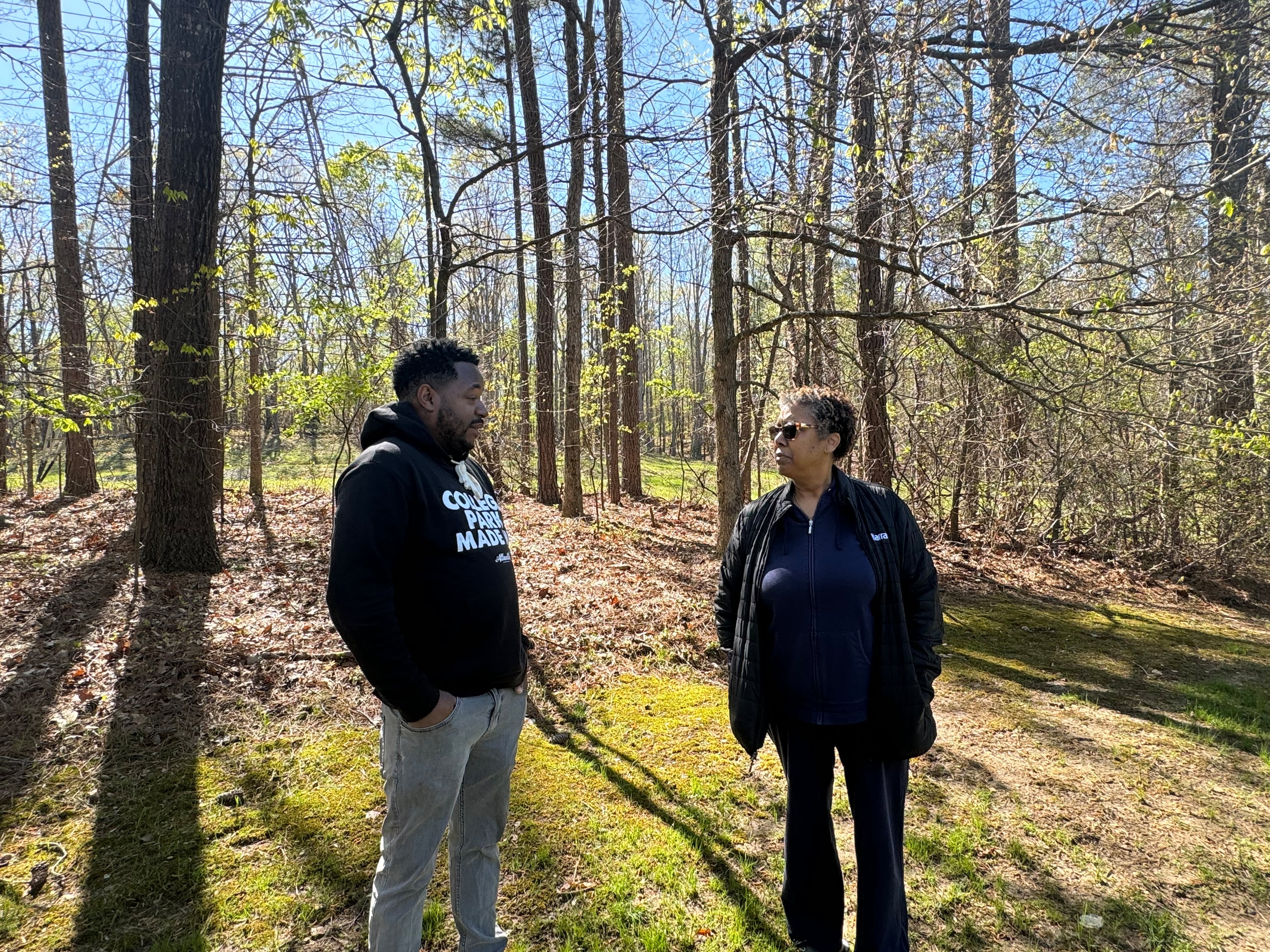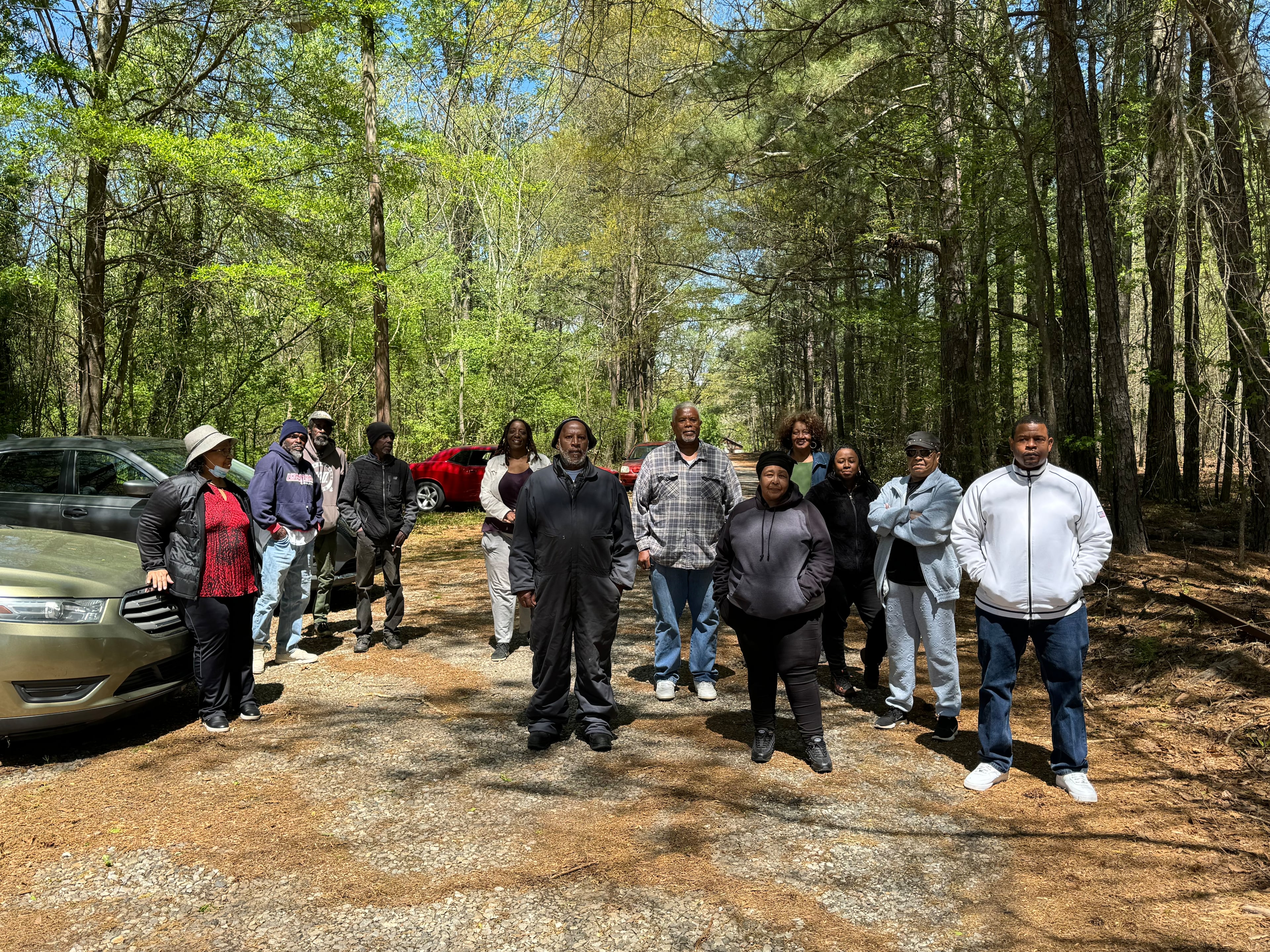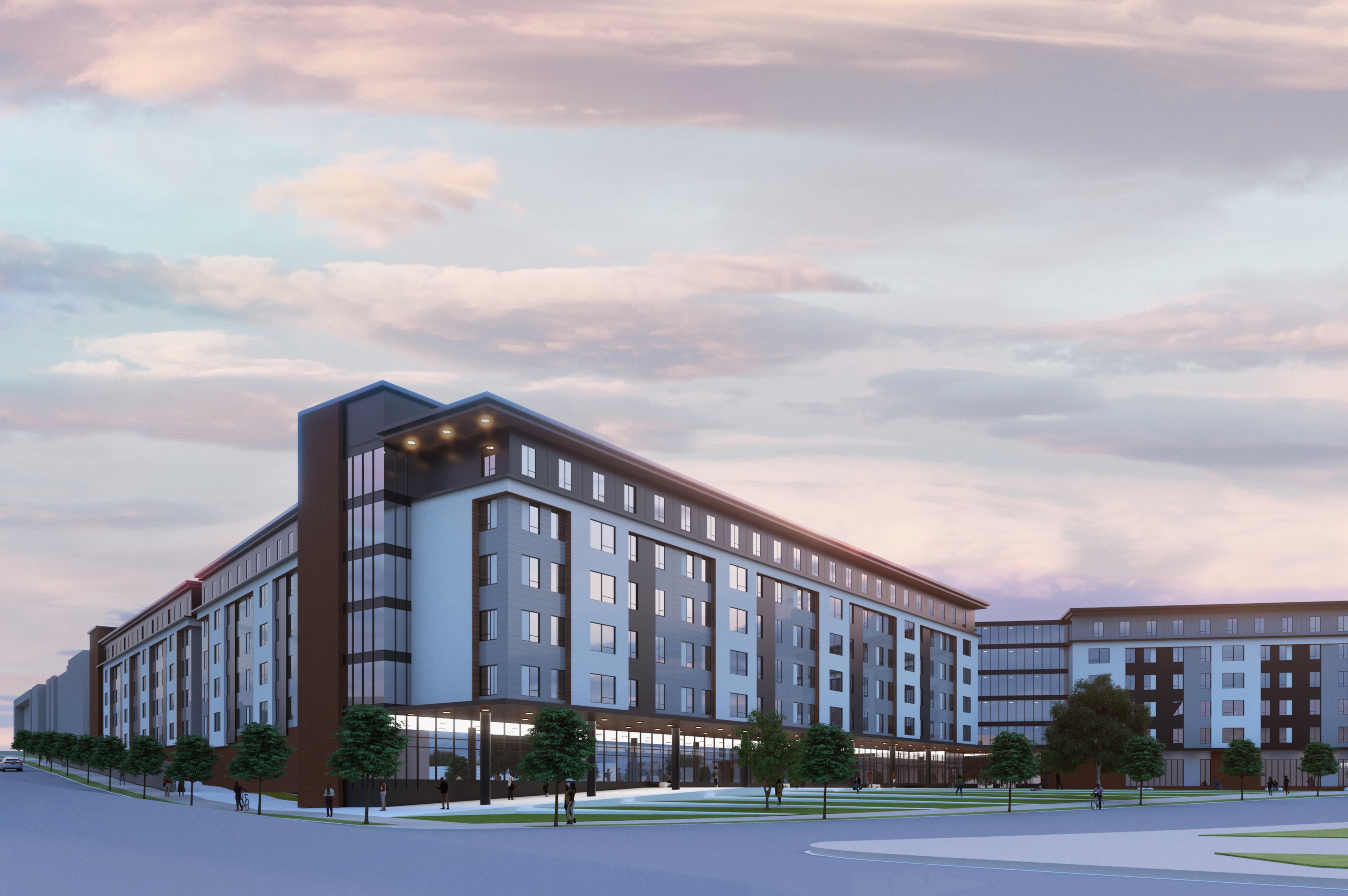Company seeks millions in tax breaks for controversial battery facility

College Park officials were set to consider millions of dollars in tax breaks for construction of a controversial battery storage facility earlier this month before the item was abruptly pulled from the city development authority agenda without explanation.
The proposed lithium-ion battery storage facility, which has alarmed residents over fire and safety concerns, is proposed for a vacant, wooded property near the city of South Fulton.
A draft of the proposed agreement, obtained by The Atlanta Journal-Constitution through the Georgia Open Records Act, lays out a $400 million “bonds for title” deal between the development authority and Southwest Atlanta Energy Storage, a subsidiary of NextEra Energy Resources, which would operate the facility.
The deal would save Southwest Atlanta Energy Storage about $12 million in property taxes over a 10-year period, and provide a $725,000 fee to the development authority.
Opponents of the plant say it would hurt property values of nearby homes, and they view the proposed tax abatement as evidence that their city government is not on their side.
“That excites no one,” said city resident Sherry Godfrey, referring to the proposed tax abatement. “We just see it as more manipulation and taking advantage of constituents.”
Brian Hooker, executive director of the development authority and interim economic development director for the city of College Park, referred questions about the tax abatement to the authority’s attorney, LaTonya Nix Wiley. She did not answer whether the authority will consider the tax abatement at a later date.
Hooker did not respond to a question about how the facility will benefit the city. He also referred that question to another attorney.
NextEra has said it strives through its projects “to contribute to a sustainable future while creating jobs, economic growth and tax revenue that goes directly to supporting local schools, infrastructure and programs.”
Representatives of NextEra did not address questions from the AJC about the tax abatement proposal.

Residents have been fighting against the facility for years.
The College Park City Council rejected a rezoning of the property for the project in August 2023. At that point, residents believed the issue was dead.
But seven months later, in March 2024, a rezoning proposal was added to the meeting agenda at the last minute and passed without public discussion. The City Council also voted to accept a $1.6 million payment from NextEra at the same meeting.
The Georgia Attorney General’s Office investigated whether College Park’s zoning approval complied with the Open Meetings Act after receiving complaints from residents and College Park Mayor Bianca Motley Broom. The mayor also said the company’s payment to the city seemed improper.
When asked about the findings on Tuesday, a spokesperson for Attorney General Chris Carr said: “As it relates to the Open Meetings Act, this is an ongoing matter.” She said attorneys with the office “are still actively working on this file” but did not explain what the office has done or specifically why the matter has not been resolved a year and a half after the rezoning took place.
During the meeting in which the City Council approved the surprise rezoning and the payment from NextEra, then-City Manager Emmanuel Adediran — under questioning from the mayor — said Councilman Roderick Gay brought him the matter of the $1.6 million payment. Adediran added that he was asked to add it to that night’s meeting agenda.

Mose James IV, a fierce opponent of the project, has said on his YouTube channel that NextEra donated $5,000 to an annual festival hosted by Gay and contributed $3,300 to the past mayoral campaign of the councilman’s wife, Pamela Stoner Gay.
Gay confirmed the contributions but brushed aside any presumption that they impacted his decision to support the legislation.
Gay faced further scrutiny this month after an AJC story reported on a lawsuit that alleges he intimidated a former code enforcement official; tried to use him to carry out the councilman’s “unlawful private agendas and vendettas”; and demanded special treatment for his friends.
Gay declined to comment on the lawsuit and the tax abatement proposal.
During the Sept. 15 City Council meeting, Gay complained that NextEra went to the development authority the previous week to get the tax abatement agreement onto its agenda without telling City Council members.
“No one came here and got our blessing,” Gay said.
Gay, who faces a challenger in his bid for reelection in November, added he did not support a tax abatement and planned to “reverse” his vote on the project “at the next agenda” unless NextEra demonstrates it would generate millions of dollars in revenue for the city.
However, Gay also played down residents’ concerns about the potential for fires and explosions at the proposed facility and spoke favorably about how the energy stored in the plant could be pushed onto the power grid.

Experts say that lithium-ion batteries are a relatively safe technology, but note that failures can cause fires that burn white hot, are challenging to extinguish and can endanger nearby communities.
Residents of South Fulton who own properties near the site filed a lawsuit in October in Fulton County Superior Court challenging the rezoning, but Judge Scott McAfee dismissed the complaint in February. McAfee found that the plaintiffs missed the 30-day time limit for filing a legal challenge.
South Fulton City Councilwoman Helen Willis, whose District 3 encompasses homes near the site, said she hopes NextEra will “consider establishing a community benefit agreement to address the effects on residents in the affected areas.”
“Although community benefits were proposed, the residents opted to pursue litigation, which was ultimately unsuccessful,” Willis said in an email. “Tax abatements may be granted by the development authorities of either the City of College Park or Fulton County, making it difficult for South Fulton residents to halt the project’s progress.”
Citing a document dated July 27, 2023, the AJC has reported that NextEra proposed payments to the city of South Fulton totaling $1.9 million for “support of the proposed Southwest Atlanta Battery Energy Storage project.”
“That offer is off the table,” Willis said Wednesday. “The community will have to negotiate a new agreement and there are no guarantees that NextEra will agree to anything at this point since the community sued.”
James, who grew up in a home that is now in the city of South Fulton and near the site of the proposed battery facility, said it’s unclear whether Gay actually will try to reverse his vote on the rezoning, or if threatening to do so is simply a “bullying tactic” against NextEra.
James, who now owns the home, said the battery facility could hurt his property value and harm generational wealth in the vulnerable, predominantly-Black community.
“They did all the right things,” James said of his late parents. “They bought a house for $40,000, they stayed in their house, they cut the grass, they kept the house up, which now turns into an investment for myself and my sister.
“But what happens when you put a battery plant in that person’s backyard? It’s no longer an investment for my child.”



